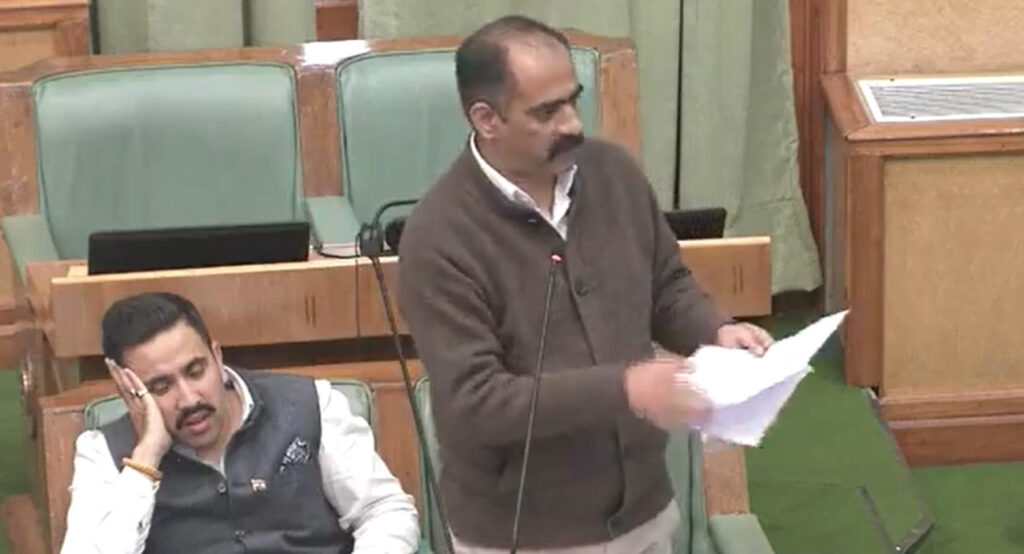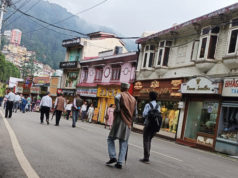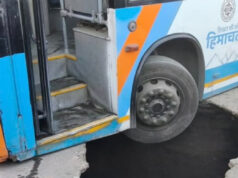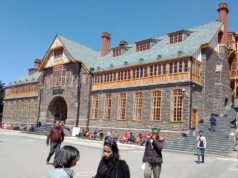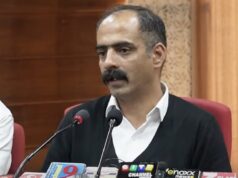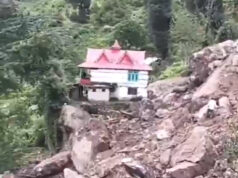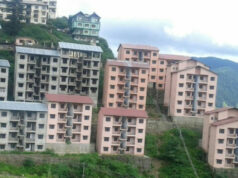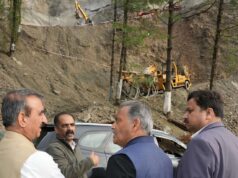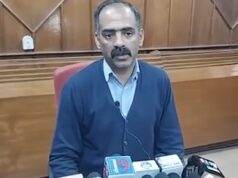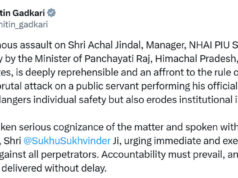Despite Quick Action on Common Citizens, MC Shimla Silent on Illegal Mosque, Minister Questions MC Shimla’s Double Standards in Handling Illegal Construction in Shimla City
Shimla: The construction of an illegal mosque in Sanjauli took center stage in the Himachal Pradesh Vidhan Sabha, sparking an intense debate and raising serious concerns about the Shimla Municipal Corporation’s (MC Shimla) selective enforcement of building laws. Panchayati Raj Minister Anirudh Singh ridiculed claims that the mosque had been constructed in the 1950s, instead revealing that the unauthorized construction began in 2010, right under the nose of MC Shimla, and continued unchecked for nearly a decade.
During the discussion, Minister Singh provided a detailed timeline of the illegal construction. “The construction of the mosque began in 2010, and within a year, 2,500 square feet of illegal work had been completed, all while MC Shimla turned a blind eye. By 2012, even after a hearing was held, the illegal construction persisted, and by 2019, four illegal stories of the mosque had been built,” he stated. Singh further criticized MC Shimla’s failure to act, questioning how such extensive illegal construction could take place without intervention. “When the case of illegal construction began in 2010, how was it possible for four entire stories to be built? What exactly was MC Shimla doing during this time?”
Adding to the controversy, Singh disclosed that the illegal construction had now expanded to over 6,000 square feet. He raised further concerns about the municipal body’s efficiency by revealing a shocking oversight: “In 2023, it came to light that a person attending the hearing related to the illegal construction case was not even linked to the issue, further highlighting the mismanagement and questionable functioning of MC Shimla.”
The heated debate continued as Singh accused the municipal corporation of a double standard, noting that common citizens face immediate action for minor violations, while large-scale illegal constructions like the Sanjauli mosque are allowed to continue unchecked.
Urban Development Minister Vikramaditya Singh attempted to ease tensions, stating that legal action would be taken if the court deemed the mosque’s construction illegal. “The law will take its course, and action will be taken as per the rules. However, we must avoid dangerous rhetoric that could further inflame the situation,” he cautioned.
Congress MLA Harish Janartha, while defending the mosque’s presence, argued that the issue was being given an unnecessary communal twist. He clarified that the mosque was built on Waqf Board land, with construction starting 10-15 years ago. Janartha also mentioned a recent fight between locals, which he said was being misrepresented to fuel the controversy.
BJP MLA Balbir Singh Verma, who brought the issue to the House’s attention, warned that the situation in Sanjauli was deteriorating, with large religious gatherings taking place regularly. “The mosque is surrounded by temples, schools and educational institutions, with 99% of the residents belonging to other religions. Preaching in the name of religion should not be allowed in such a sensitive area,” Verma insisted, calling for a halt to such gatherings.
As the Vidhan Sabha debated the Sanjauli mosque controversy, questions over MC Shimla’s handling of illegal constructions grew louder. With over 6,000 square feet of unauthorized construction completed and no meaningful action taken, the issue is now seen as a test of governance and accountability in Shimla’s municipal administration. The MC Shimla’s perceived inaction and the simmering tensions surrounding the religious structure have raised questions about governance and fairness in the city’s development regulations.


